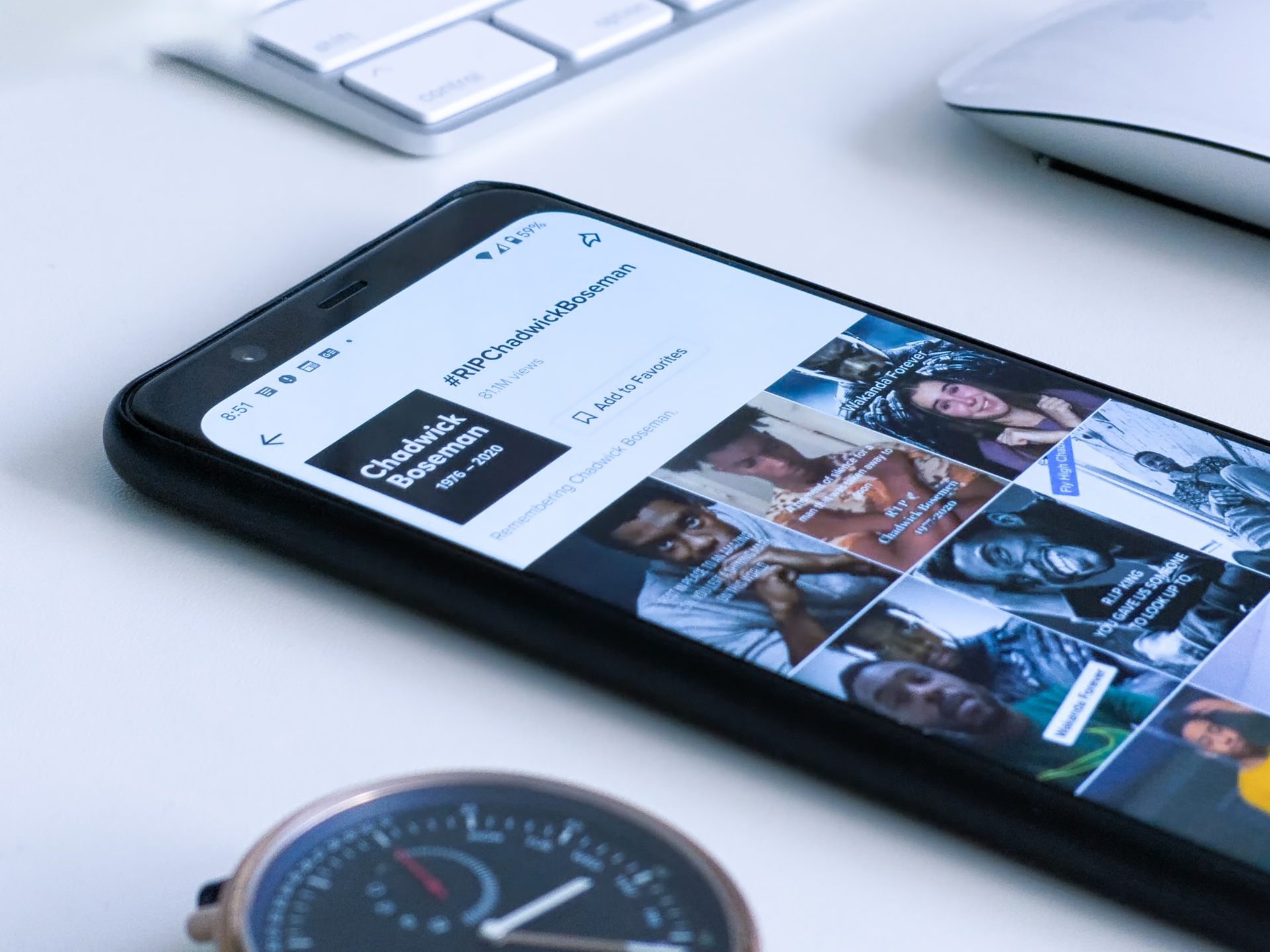3 Reasons Why Chadwick Boseman’s Death Shocked This Nurse

Chadwick Boseman’s passing of colon cancer was really perturbing. There were quite a few reasons why, despite my experience as a nurse, that I found his passing shocking.
- He was young!!!!! Too young to be considered for screening even as far as I knew.
- As a nurse, I was taught that screening for colon cancer starts at 50 years old.
- I was unaware of how colon cancer plagued the African-American community.
*DISCLOSURE: THIS POST MAY CONTAIN AFFILIATE LINKS, MEANING I GET A COMMISSION IF YOU DECIDE TO MAKE A PURCHASE THROUGH MY LINKS, AT NO COST TO YOU.
I was deeply affected by Chadwick’s passing. For those who missed this breaking news: Chadwick Boseman, lead actor in the revolutionary movie Black Panther*, passed away from colon cancer at 43 years old. 43 years old?! That just doesn’t make any sense to me at all. And I’m a nurse! If someone with that kind of money and access could lose his life so quickly, and at such a young age, then what hope is there for the average person in this situation? Those were some of my feelings. The Mayo Clinic lists factors that can increase the risk of colon cancer. I don’t know how many he had but an easy one to check for him is that he was an African American. How come this matters so much? Let’s talk about risk factors.
Risk Factors You Can’t Control

This can all be found at the Mayo Clinic’s web page on colon cancer.
- Older age: as much as we would want to freeze time, we simply cannot.
- African-American race: enough said.
- History of cancer or polyps: hopefully your doctor would advise you to get regular screenings if you have this in your medical history.
- Inflammatory intestinal conditions, like ulcerative colitis or Chron’s: I imagine that the better you can manage your disease by keeping up with follow-ups, taking your medication, and adjusting your diet, then you can better mitigate your risk.
- Family history of colon cancer: it’s important to know your family history so it is easier for doctors to connect your symptoms to a likely disease. Also, could help you get screened earlier for things like this.
- Radiation therapy for cancer: your doctor should be sharing this risk with you so you know to keep an eye out for symptoms.
Risk Factors You Can Control

Photo by Evelyn Chong from Pexels
- Eating a low-fiber, high-fat diet: you can fix this by eating more high-fiber foods, like whole grains, fruits, veggies. Eating leaner cuts of meat can help you decrease the fat content of your diet significantly.
- Living a sedentary lifestyle: walking is the simplest way to increase your activity level. Park further in the parking lot. Take a stroll for 15-20 minutes after work. The best way to be more active is by finding an activity you enjoy, like dancing, kickboxing, etc. Then you’re more likely to do it.
- Diabetes: the web page didn’t specify if they were referring to Type 1 or Type 2 diabetes. However, it made mention of insulin resistance which is associated with Type 2 diabetes. Type 2 diabetes is technically preventable with diet and exercise. If you have diabetes though, managing it can mitigate your risk for other diseases.
- Obesity: if losing weight is a goal, talk to your primary care doctor about it. Mine referred me to the nutritionist that helped me lost 40 pounds. I documented my journey here.
- Smoking: quit. It doesn’t do anybody any good. And it’s expensive.
- Alcohol: use in moderation.
Cancer Prevention Screenings
The American Cancer Society (ACS) recommends colon cancer screening for those at average risk to start at the age of 45. This was news to me as I have always heard 50 as the Mayo Clinic recommends. Either way, the fact remains that Chadwick was diagnosed with colon cancer at around 39 years old and passed away by 43. He died before the average person should even start screening. That’s extremely unsettling.
Another unsettling fact was it is recommended to have earlier screening when you are at higher risk. One of those risk factors for colon cancer is being African-American. However, there is no mention of when that screening should begin. There’s simply no standard. This puts more of the onus on the patient or consumer rather than healthcare itself. It is up to you then to discuss this with your primary care doctor. If healthcare workers like me, were unaware of the ACS recommendation for screening at 45, how likely are they to recommend earlier screening for risk factors? What does this even mean? You are likely going to have to have concerning symptoms prior to that even being a consideration.
It makes sense to me that these trusted health organizations would create some kind of template for those with increased risk. For example, if you have 1-2 risk factors, start screening three years earlier. If you have 3-5 risk factors, start screening five years earlier. Do you know what I mean? This would make it easier for consumers and doctors alike to plan accordingly. If someone who can make this change reads this, make it happen cap’n.
Aside from the lack of standards or guidance when it comes to early screening, there presents a completely different, but just as relevant, issue. Cost.
The Off-putting Costs of Healthcare

Image by Bruno /Germany from Pixabay
Since Chadwick passed, there has been a lot of chatter about the need for colon cancer screening and preventative care. This is especially so among people of color. However, this led to the conversation about the costs of keeping up with screening and preventative care can prohibit people from doing it at all. I mean, it’s easy to say screening is needed but is it realistic?
Let’s briefly go over the potential costs of routine screening if you are blessed enough to be insured. Do you have a deductible? Is it $50? $1000? $1500? $3000? Insurance won’t pay a lick of your bill until that deductible is met. That can be very hard to do if you are a relatively healthy person.
If you’re getting a colonoscopy, you are likely going to receive several bills afterward. One will be for the gastroenterologist (one co-pay for the consult visit to arrange for the colonoscopy and one charge for him performing the procedure day of). Another will come from the endoscopy/GI center where you will have the test. If they take a biopsy (which if they are checking for colon cancer they will), there is a pathology fee. You will likely get another from the anesthesiologist.
Ideally, routine screenings and physicals would be free but that’s not the America we live in.
Get checked out anyway – you have options
With this knowledge in hand, you may lean toward the non-invasive options first. It will definitely cost less. There are invasive and non-invasive ways of screening for colon cancer. Getting a colonoscopy is the gold standard for colon cancer screening. So if you chose a non-invasive method for your screening and it showed something concerning, you would have to get a colonoscopy anyway. However, that is a conversation you need to have with your doctor. You can examine your risk factors together, along with any symptoms you may be concerned about, and decide the best screening method for you.
All that being said, some people can’t fathom potentially paying hundreds of dollars for a test when they feel healthy. I get that. However, think about this. Almost any disease process you catch early on is more manageable and cheaper to manage. You also usually have more treatment options available to you and more time to make a decision as to how to proceed with your care.
Budget for it
One way to pay for health-related bills is by using your HSA or FSA. Some jobs or health insurances have this as a benefit which allows you to put away a pre-determined amount of cash every year, pre-tax, that you can use to pay for medical bills. I started using my FSA this year. I chose to put $500 in for 2020. My job breaks that amount up by the number of pay periods so I see about $18.50 come out of each check. Automate! I have a debit-like card that I could swipe to pay for medical bills. But I prefer to game the system a little bit and pay with my credit card to earn points/cashback. I then submit the receipt to my provider and they reimburse me. Either way, I’m using money already set aside for this line item so it’s not an extra burden. Some jobs put money in for you if you do perform health maintenance tasks, like having a gym membership or getting routine physicals done.
Accept help
One way you can decrease costs, if you cannot afford your care, is to apply for Charity Care at your local healthcare system. To make the best use of your time and efforts, it’s ideal for all your doctors and healthcare to be from one medical system, or else you would likely have to re-apply with each system. This may be a sore spot for people because people’s pride makes them allergic to the word charity. I think I would feel uneasy too. However, in looking at the big picture, you can live a healthier life, which is more enjoyable. You can live a longer life, where you can accomplish goals that matter to you and spend more time with the people you love.
Also, despite the name, Charity Care doesn’t mean they are just going to cover your bill at 100%. They go over your financials. For some people, Charity Care will cover 20%, 50%, 80% of the bill. This can assist you in making it possible to cover your costs so hopefully, you don’t have to decide between caring for yourself and paying your other routine bills.
Chadwick’s passing was a rude awakening for me and many others in the black community. While our healthcare system can be hard to navigate, take the time to learn more about how you can best manage your care in the community you live in. Hopefully, one day, there will be some standardization on when you should get screened that gets adjusted based on your risk factors. How else would we get insurance to cover it?
To-Do List
- Have routine follow-ups with your primary care doctor. Have conversations about your family history, your health concerns, and your risk factors.
- There are screenings for different age groups. Try to maintain them as best as possible.
- Look into available benefits that will help you pay for your bills.
Your turn? How did Chadwick’s death affect you? What barriers do you face in obtaining routine healthcare? What tips or tricks do you have to handle them? Share in the comments.
Originally published in September 2020, this post has been updated by Prisca Benson.

hari
this is such a detailed post on the preventative measures we can follow against this deadly danger.
although I don’t have any knowledge about Chadwick, hearing this news makes me worried.
43 isn’t the age for death!
Jeannie
thanks for the information, I also felt sad with the news about him. Something that is lacking with American diet is high fiber food I always seem to read that…
Jenny
Very thorough and informative, and so important. As an oncology nurse, I have seen this too many times. I’m curious if he had any genetic predisposition to early cancer diagnosis. So sad to see this happen to anyone at such a young age.
P. Benson
Yes. It is definitely something for our society to work on. I think for some, we’re headed that way. However, money and access are barriers for many.
Mo
This hit me hard too. He made a huge impact in a lot of people’s lives. He was a fighter and as a nurse myself, it’s hard to believe how young he was to have such a terrible illness. May more screenings be done and more awareness be put out there. Thanks for sharing!
Kendra Kaiser
What a terrible loss. Thanks for sharing the risk factors and some ways we can possibly prevent colon cancer.
Kristen
Thank you for sharing this. This is very informative and gives people a lot of tips and things to look out for.
I too was shocked when I heard the news. 43 is so young. There is such a disparity in health-care access.
P. Benson
I think people at higher risk should have different standards for when screening begins. Insurance won’t cover it otherwise.
Rachel
Thanks for sharing this vital information and educating others. Health is so important and your message of to get checked is vital. Thanks!
JustReadingJess
Thank you for sharing. There is a lot of useful information in here that I didn’t know.
Jess
I also had no idea how much it plagued the African American community! So sad to hear of so many young men just like him battle this disease!
Eric Petersen
It’s sad and unfair that good people always taken back so soon. I am heartbroken to hear this. He was a wonderful actor who is only a few years established himself as one of the finest actors in the world. So many great roles that will live on in our hearts and memories forever. I looked forward to a lifetime of great performances. My deepest condolences to his family and friends. Thanks for sharing!
Sarah S
It was so shocking!
I always thought that colon cancer screenings should only be done later in life as well. As well as breast cancer screenings.
I wonder if this will help add to the notion of including more preventative care instead of just reactive care on our radars.
Thanks for the info!
Megan
Thank you for sharing this. My uncle had colon cancer, but thankfully he is currently in remission. I couldn’t believe Mr. Boseman died so young too, it was shocking and so so sad. Thanks for sharing this information, hopefully it can help some folks.
P. Benson
That is the goal. Often, our healthcare system makes it so we have to fend for ourselves
2020 Wins & Losses - How I'm Bringing in the New Year —
[…] Another celebrity death that impacted me: the passing of Chadwick Boseman AKA The Black Panther. It was sad to lose such a talent and what seems to have been a genuinely good person in this world. However, for me, this went deeper. This loss struck a lot of fear in me as this young black man lost his life to a disease before anyone would think to look for it. Could I potentially lose my husband to this or another disease no one would think to look for? I shared my concerns in another post which you can check out HERE. […]
Diabetes - What You Need to Know —
[…] If you don’t have insurance, ask about self-pay options. Frequently, if you are paying cash for services, they charge less than if they were submitting the bill to health insurance. Also, consider applying for Charity Care at your local hospital system. I shared more info on this in a previous post. […]